Colorless Tsukuru Tazaki and His Years of Pilgrimage ~ Haruki Murakami
It's a journey, it's loss, it's pure emotion. It's real, it's realism, and it's anything but colorless. The story of colorless Tsukuru Tazaki begins at the bottom, with heartbreak and abandonment, Tsukuru ("the builder," maker of train stations, the empty container) having lost his four colorful friends. From there he climbs upward but must endure loss repeatedly through his life, always in the dark, always sure the fault is his own but never remembering what he did wrong.
This book was exactly what I needed this week. I spent a week in solitude; I picked up a nasty bug after a ten minute conversation with a woman just beginning to show symptoms, and was exiled by my uncontrollable fever as well as my desire not to pass on the lergy. From my room, this story put me on a journey, filled me emotionally, gave color. After I bought it, I found out pajamasaurus had been carrying the same edition of the same book but hadn't started it. I suggested we read it together. We caught up yesterday when we were three-quarters through it, and discovered we were within a page and a half of each other. There's a lot of heartache in this book, and it was comforting to share it with a friend and know someone is close by.
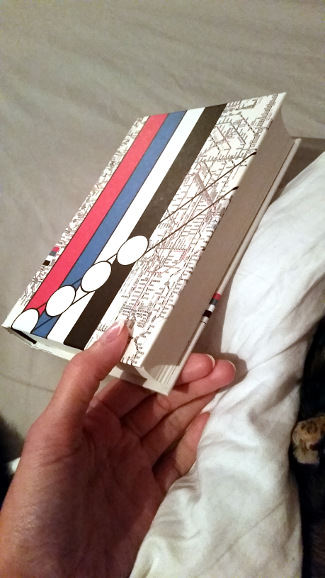

It's pretty, too, and pleasurable to hold.
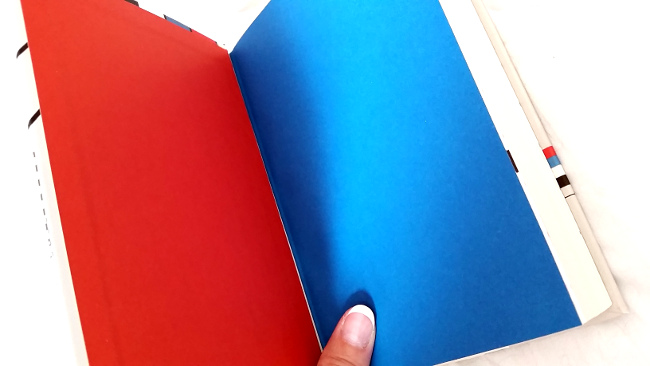
Red and blue.
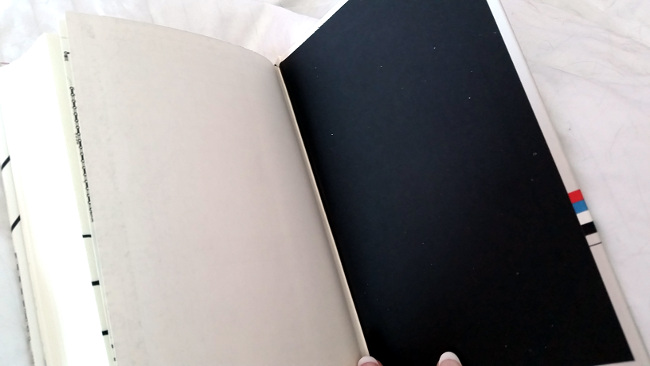
White and black.
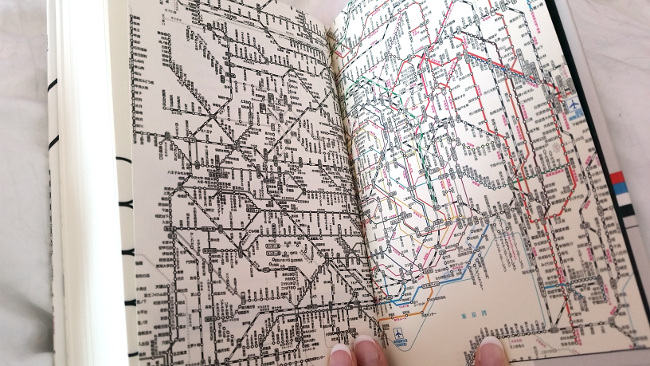
Tokyo subway map in monochrome and color.
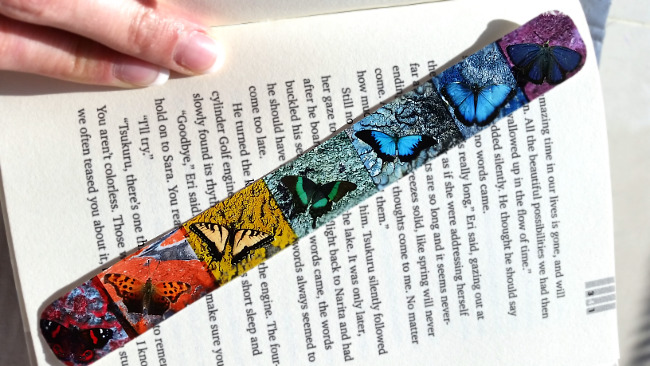
I used the far-from-colorless (and distinctly cornerless) bookmark that oonh gave me.
I don't know how I knew, but from page one I expected realism and not surrealism. Maybe because The Strange Library came out at the same time, and a peek inside told me Library is surrealism at its purest. I told pajamasaurus I had a feeling it would be too real, like Norwegian Wood was. It did have the usual Murakami elements: a jazz and classical soundtrack, Cutty Sark whiskey, and a brief description of every meal the protagonist eats. I noticed a lot of characters had white teeth this time around. The number five is important, too, and only five -- six can be too many. The novel, I feel, is a perfect ten. And with that, I'm ready to plan my upcoming trip to Japan.
This book was exactly what I needed this week. I spent a week in solitude; I picked up a nasty bug after a ten minute conversation with a woman just beginning to show symptoms, and was exiled by my uncontrollable fever as well as my desire not to pass on the lergy. From my room, this story put me on a journey, filled me emotionally, gave color. After I bought it, I found out pajamasaurus had been carrying the same edition of the same book but hadn't started it. I suggested we read it together. We caught up yesterday when we were three-quarters through it, and discovered we were within a page and a half of each other. There's a lot of heartache in this book, and it was comforting to share it with a friend and know someone is close by.


It's pretty, too, and pleasurable to hold.

Red and blue.

White and black.

Tokyo subway map in monochrome and color.

I used the far-from-colorless (and distinctly cornerless) bookmark that oonh gave me.
I don't know how I knew, but from page one I expected realism and not surrealism. Maybe because The Strange Library came out at the same time, and a peek inside told me Library is surrealism at its purest. I told pajamasaurus I had a feeling it would be too real, like Norwegian Wood was. It did have the usual Murakami elements: a jazz and classical soundtrack, Cutty Sark whiskey, and a brief description of every meal the protagonist eats. I noticed a lot of characters had white teeth this time around. The number five is important, too, and only five -- six can be too many. The novel, I feel, is a perfect ten. And with that, I'm ready to plan my upcoming trip to Japan.